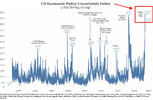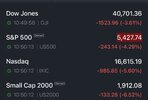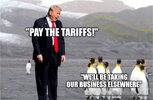Tesla has several fronts open in the market. It is not only Elon's image affecting the brand. On the one hand there is the housing market, closely related to the car market and on the other the competition from electric cars from China.
As of March 2025, the U.S. housing market is showing signs of stagnation: prices are high, inventory is rising but remains scarce, and sales are tepid as buyers weigh affordability and economic uncertainty. The housing market and vehicle sales are linked through affordability, confidence, and economic ripples. Right now, high costs in both are tempering demand. If housing prices or mortgage rates climb too high, households might delay car purchases to prioritize shelter costs.
Now a Chinese electric car has arrived that could surpass the goodness of the cyber truck. The question is whether Elon is weighing pulling out of the electric car market or will he decide to focus on robotics and space exploration.
As of March 2025, the U.S. housing market is showing signs of stagnation: prices are high, inventory is rising but remains scarce, and sales are tepid as buyers weigh affordability and economic uncertainty. The housing market and vehicle sales are linked through affordability, confidence, and economic ripples. Right now, high costs in both are tempering demand. If housing prices or mortgage rates climb too high, households might delay car purchases to prioritize shelter costs.
Now a Chinese electric car has arrived that could surpass the goodness of the cyber truck. The question is whether Elon is weighing pulling out of the electric car market or will he decide to focus on robotics and space exploration.
Tesla shares fall after unveiling of BYD's new car: the numbers.
Tesla Inc (TSLA) has gone from being the most attractive company on Wall Street to the most hated in a matter of months. Compounding the stock's woes this week, a rival from China has outperformed the company in what is supposed to be Elon Musk's forte: electric vehicle innovation.Tesla shares fell -5.3% on Tuesday, while BYD Co. soared to an all-time high after unveiling an electric car that can charge as fast as a gasoline vehicle is refueled.
It's the latest blow for Tesla, whose sky-high valuation is based on the company's ability to constantly innovate and stay ahead of rivals. Confidence had already soured last month after news that sales of its electric cars had slumped in key markets. And Musk's rising political prominence-which late last year was widely expected to give Tesla's business a boost-has instead become a problem for the stock.


Acciones de Tesla caen tras la presentación del nuevo auto de BYD: las cifras
Las acciones de Tesla son actualmente las de peor rendimiento del índice S&P 500 en el año.
Grok: What will happen if TSLA shares continue to fall?
If Tesla's stock (TSLA) continues to fall, several potential consequences could unfold, affecting the company, its CEO Elon Musk, investors, and the broader market. Based on current trends and insights, here’s what might happen:
1. Impact on Elon Musk’s Wealth and Influence:
Elon Musk’s net worth is heavily tied to Tesla stock, as it constitutes a significant portion of his fortune. A continued decline could shrink his wealth further—already down over $100 billion from its peak in December 2024, according to some estimates. While he’s unlikely to lose his status as the world’s richest person immediately, a prolonged drop might force him to sell more Tesla shares to fund other ventures (like X or SpaceX), potentially accelerating the decline. There’s also speculation that if TSLA falls too far, banks or creditors tied to his $44 billion X acquisition (partially financed with Tesla stock as collateral) could demand action, possibly even repossessing X if loan terms are breached.
2. Investor Sentiment and Market Reaction:
Tesla’s stock has already shed nearly 50% of its value since mid-December 2024, erasing over $700 billion in market capitalization. A continued fall could trigger a shareholder revolt, especially if investors lose faith in Musk’s leadership amid his focus on political roles (like the Department of Government Efficiency, or DOGE) and other projects.
3. Operational Challenges for Tesla:
Falling stock prices could limit Tesla’s ability to raise capital through equity markets, hampering expansion plans like new gigafactories or R&D for autonomous vehicles and AI. Declining sales—down 11% in the U.S. and 45% in Europe in early 2025—might worsen if consumer backlash to Musk’s political stances grows, potentially alienating key demographics. Competitors like BYD, offering cheaper or free driver-assistance tech, could further erode Tesla’s market share, especially in China, a critical region for the company.
4. Broader Market and Economic Ripples:
Tesla’s outsized presence in the S&P 500 means its decline could drag down the index, affecting broader market sentiment. A trade war sparked by Trump’s tariffs—potentially raising costs for Tesla’s supply chain—might exacerbate this, especially if retaliatory measures (e.g., Canada’s proposed Tesla-specific tariffs) hit sales. If Tesla’s valuation continues to deflate, it could signal a shift away from growth stocks, impacting other high-flying tech companies.










